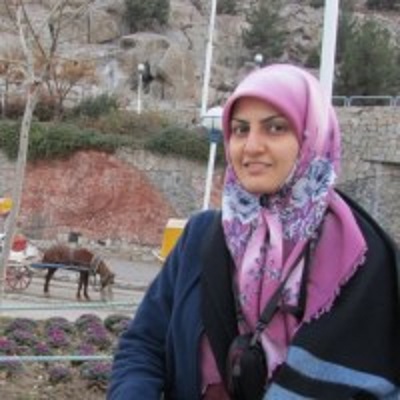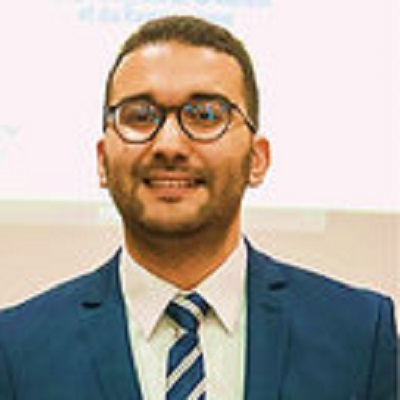Meet The Team
AIMMLab Secretariat serves as the administrative platform for the implementation of the AIMMLab objectives and informs the vision of the AIMMLab, working closely with the Board of Trustees and carrying out the day-to-day running of the Board of Trustees program. The main secretariats are located at York University, Canada and Witswaterand University in South Africa. AIMMLab has Prof. Jude Kong as the executive director. The Secretariats are assisted by a chief scientist, Dr. Nicola Luigi Bragazzi, a communication and community engagement officer Ms. Bahlelisiwe (Liswa) Luhlanga, and four postdoctoral fellows: Drs. Wisdom Avusuglo, Qing Han, Blessing Ogbuokiri, and Zahra Movahedi Nia.
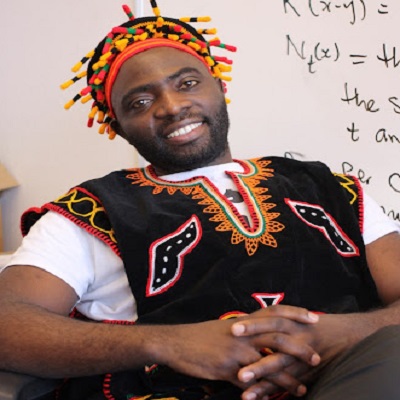
Prof. Jude Kong is a professor in the Mathematics & Statistics Department at York University and the founding Director of the Africa-Canada Artificial Intelligence and Data Innovation Consortium (ACADIC). Additionally, he is the Executive Director of the Global South Artificial Intelligence for Pandemic and Epidermic Preparedness and Response Network and the Regional Node Liaison to the steering committee of the Canadian Black Scientist Network (CBSN). He obtained his Ph.D. in Mathematics from the University of Alberta, his MSc. in Engineering mathematics from the University of Hamburg-Germany and the University of L’Aquila-Italy. His B.Sc. in Computer Science and Mathematics was acquired at the University of Buea-Cameroon and his Bachelor of Education (B.Ed) degree in Mathematics was earned at the University of Yaounde-Cameroon. Before joining York University, he did a postdoc at Princeton University. Dr. Kong is an expert in artificial intelligence, data science, mathematical modelling, infectious disease modelling and mathematics education. His principal research program focuses on the use of artificial intelligence, data science, mathematical models and other quantitative methods to improve decision-making for clinical public health.
During the COVID-19 pandemic, he has been leading an interdisciplinary team of more than 52 researchers from key academic and government institutions in nine African countries that have been using Artificial intelligence to help government and local communities to contain and manage the spread of COVID-19. In 2020, he won a York Research Leader Award. In 2021 he was spotlighted among Canadian Innovation Research Leaders 2021 for his work with ACADIC. In 2022, he was spotlighted as a Change Maker by People of YU for his work in helping others learn mathematical concepts and encouraging them to find their passion and achieve more than they thought was possible. He is an Area Editor of the Data & Policy Journal where he focuses on Data Technologies and Analytics for Policy and Governance.
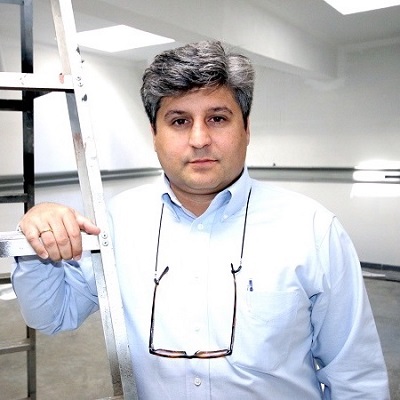
Prof. Bruce Mellado is the Co-Executive Director of ACADIC and a member of the Gauteng Premier’s COVID-19 Advisory Committee, where he leads work on predicting and forecasting the dynamics of COVID-19. He is the recipient of several awards and fellowships. Prof. Mellado is an Internationally acclaimed, B1-rated researcher of the National Research Foundation of South Africa. He is an expert in Artificial Intelligence

Nicola Luigi Bragazzi got his MD in general medicine and surgery from Genoa University (Genoa, Italy) in 2011, his PhD in biophysics from Marburg University (Marburg, Germany) in 2014 and his specialization in Public Health from Genoa University (Genoa, Italy) in 2017. He is a member of the Cochrane Association (Cochrane Reviewer) for the Cochrane Epilepsy Group. He has been awarded Young Knight of the Italian Republic by the President Carlo Azeglio Ciampi in 2005. Recently, in 2019, he has been nominated as one of the top five biomedical researchers worldwide aged less than 40 years in terms of number of publications, articles in Q1 biomedical journals, total impact factor and h-index. He is currently working on infectious disease and vaccination modelling and big data mining in biomedicine at York University.
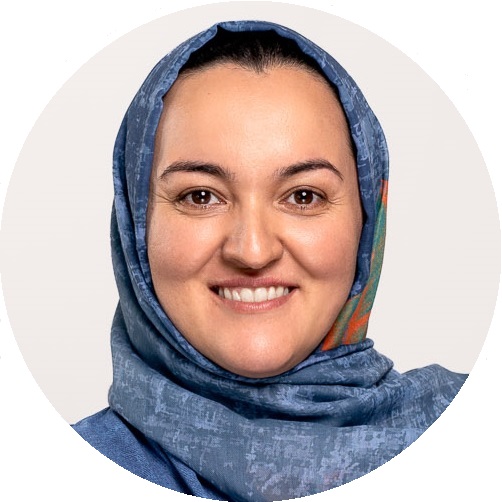
Laleh Seyyed Kalantari
Laleh is an Assistant Professor in the Department of Electrical Engineering and Computer Science, Lassonde School of Engineering, York University. Before that, she was an Associate Scientist at Lunenfeld Tanenbaum Research Institute, Toronto, Canada. With a Ph.D. in electrical engineering from McMaster University (2017), she was an NSERC postdoctoral fellow at the Vector Institute and the University of Toronto (2019-2022). Her research interests are responsible AI, AI in medical imaging, and developing AI diagnostic tools with a focus on their fairness. Her ultimate goal is to remove barriers toward the trustable deployment of AI diagnostic tools in clinics, such that they benefit the patients, provide fairness, and reduce the workload of clinical staff. She has received a number of highly competitive awards such as Banting Postdoctoral Fellowship (2022-declined), NSERC Postdoctoral Fellowship (2018), among many others.

Dr. Wisdom Avusuglo is an expert in Financial Mathematics and Data Science and uses a highly multi-disciplinary approach, at the intersection of disciplines such as Computer Science, mathematics, biology, public health, and epidemiology. His research project with ACADIC focuses on using mathematical modelling and other quantitative methods to improve decision-making for COVID-19 and malaria in Africa. He is currently designing and analyzing models to investigate the transmission dynamics of COVID-19 and malaria and better understand and quantify the health, economic, and social implications of different control measures and policies.
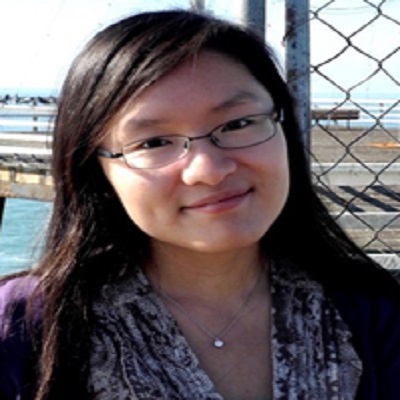
Dr. Qing Han got her Ph.D. from Purdue University in United States specialized in Mathematical Epidemiology. She uses mathematical and statistical models to study the qualitative and quantitative characteristics of emerging and remerging infectious diseases, to uncover transmission mechanisms and inform public health policies. She has wide experiences in modeling COVID-19, malaria, influenza, pneumonia, TB and pertussis etc.

Dr Blessing Ogbuokiri is currently a postdoctoral fellow and instructor at the Africa-Canada Artificial Intelligence and Data Innovation Consortium (ACADIC) laboratory, Department of Mathematics and Statistics, York University, Toronto, Canada. He leads a project to model the dynamics of community-based infectious diseases, such as Covid-19 and Malaria using AI. He has applied his knowledge, expertise, and experiences from python programming, data science libraries (Numpy, Scipy, Pandas, Matplotlib, Seaborn), machine learning algorithms (SVM, Linear Regression, Logistic Regression, Decision Tree, Naive Bayes, LSTM), data science libraries (Numpy, Scipy, Pandas, Matplotlib, Seaborn, statannot), machine learning libraries (Scikit-learn, TensorFlow) and NLP libraries (NLTK, spaCy, Gensim, TextBlob, text2emotion, VADER, LDA) to different projects. One of such projects is the impact of the Omicron Outbreak on vaccine uptake in South Africa Using social media data.
He has collaborated actively with researchers in several interdisciplinary groups such as the Africa-Canada Artificial Intelligence and Data Innovation Consortium (ACADIC) at York University, Canadian Black Scientist Network, and Black Creek in using artificial intelligence to help government and local communities to contain and manage the spread of COVID-19 and other infectious disease outbreaks.

Abhaya works on theoretical particle physics, specifically studying the fundamental building blocks of matter present in our Universe. The research work I have done, till date, mostly revolves around investigating the methodologies for measuring the properties of Dark Matter at the Large Hadron Collider which is the largest experiment ever built by humans. These thrilling research experiences during my PhD and Postdocs not only made me a good physicist but also led me to acquire sound knowledge in data science and problem solving skills in various applied fields.

